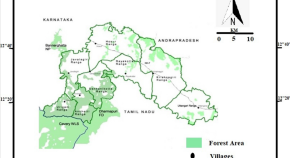Collection
Geospatial Data Analysis through Artificial Intelligence
- Submission status
- Closed
This Special Issue presents a combined method to AI solutions that includes not only algorithms for smart geospatial data analysis, but also environmental and social scopes, thus adopting a healthy collaboration between the Computer Science, Geoscience, Remote Sensing, Social Science, and Machine Learning societies. In this current era, Artificial Intelligence (AI) and Deep Learning approaches in specific had a transformative influence in fields such as NLP or computer vision, suggestively proceeding the state-of-the-art in problems like classifying unstructured data, or semantically segmenting contents. These identical methods can also enable a next generation of Geographical Information Systems (GISs), providing the capacity to belief spatial analysis with wild and adjacent human-level perception, this way facilitating location-based discovery and analysis of relevant information. With the progressions of deep learning algorithms ,software and hardware technologies, , scalable computation platforms, and availability of high-resolution geospatial data are empowering the fast-growing field of Geo-AI. This special issue (SI) targets to convey composed the modern investigation on this subject and inspires the growth and distribution of open Geo-AI tools that can be re-processed for GI-Science & Geo-Informatics research and education.
Editors
-
Tanupriya Choudhury, Ph.D.
Associate Professor, Dept. of Informatics, School of CS, University of Petroleum and Energy Studies (UPES), Dehradun Uttarakhand, India
-
Jung-Sup Um, Ph.D.
Professor, Department of Geography, College of Social Sciences, Kyungpook National University, South Korea
Articles (17 in this collection)
-
-
A bibliometric review of geospatial analyses and artificial intelligence literature in agriculture
Authors (first, second and last of 4)
- Ahmed Karmaoui
- Samir El Jaafari
- Lhoussain Hajji
- Content type: OriginalPaper
- Published: 18 March 2023
- Pages: 343 - 360
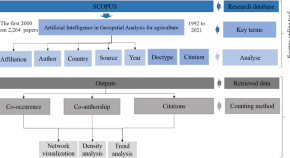
-
Explanation of major determinants of poverty using multivariate statistical approach and spatial technology: a case study on Birbhum district, West Bengal, India
Authors
- Ranajit Ghosh
- Niladri Das
- Prolay Mondal
- Content type: OriginalPaper
- Published: 17 November 2022
- Pages: 293 - 319
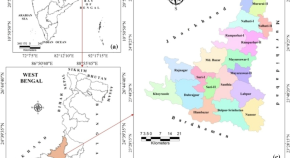
-
Natural language processing of spatially crowdsourced data in petroleum revenue management
Authors
- Michael Ogbe
- Content type: OriginalPaper
- Open Access
- Published: 02 November 2022
- Pages: 321 - 341

-
Prediction of waterlogged zones under heavy rainfall conditions using machine learning and GIS tools: a case study of Mumbai
Authors (first, second and last of 4)
- Sunil Khatri
- Pravin Kokane
- Shubham Pawar
- Content type: OriginalPaper
- Published: 04 August 2022
- Pages: 277 - 291
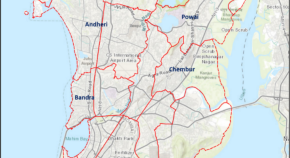
-
Geospatial analysis of short term shoreline change behavior between Subarnarekha and Rasulpur estuary, east coast of India using intelligent techniques (DSAS)
Authors (first, second and last of 6)
- Anindita Nath
- Bappaditya Koley
- Bidhan Chandra Ray
- Content type: OriginalPaper
- Published: 30 June 2022
- Pages: 255 - 275

-
Detecting land use changes using hybrid machine learning methods in the Australian tropical regions
Authors
- Mahdi Sedighkia
- Bithin Datta
- Content type: OriginalPaper
- Open Access
- Published: 09 June 2022
- Pages: 241 - 253
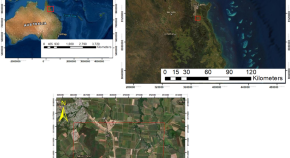
-
Application of Analytic Hierarchy Process and weighted sum techniques for green tourism potential mapping in the Gangetic West Bengal, India
Authors
- Shrinwantu Raha
- Shasanka Kumar Gayen
- Content type: OriginalPaper
- Published: 08 March 2022
- Pages: 197 - 240
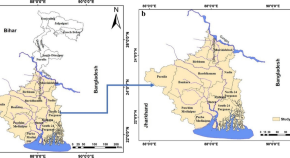
-
Assessment of spatial distribution of rain-induced and earthquake-triggered landslides using geospatial techniques along North Sikkim Road Corridor in Sikkim Himalayas, India
Authors (first, second and last of 7)
- Bappaditya Koley
- Anindita Nath
- Bidhan Chandra Ray
- Content type: OriginalPaper
- Published: 18 January 2022
- Pages: 157 - 195
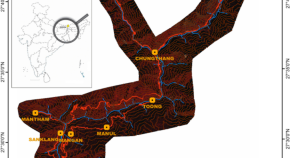
-
Risk assessment of coastal erosion for Odisha coast along Bay of Bengal, India using coastal hazard wheel model
Authors
- Gopal Krishna Panda
- Monalisha Mishra
- Uday Chatterjee
- Content type: OriginalPaper
- Published: 14 January 2022
- Pages: 109 - 134
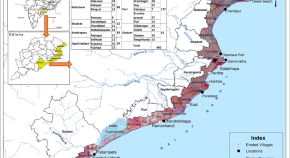
-
City-region or city? That is the question: modelling sprawl in Isfahan using geospatial data and technology
Authors (first, second and last of 4)
- Hamidreza Rabiei-Dastjerdi
- Saeid Amini
- Saeid Homayouni
- Content type: OriginalPaper
- Published: 04 January 2022
- Pages: 135 - 155
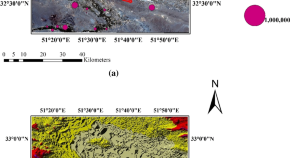
-
Long-term forecasting of tropical cyclones over Bay of Bengal using linear and non-linear statistical models
Authors
- Sweta Sen
- Narayan Chandra Nayak
- William Kumar Mohanty
- Content type: OriginalPaper
- Published: 18 November 2021
- Pages: 85 - 107
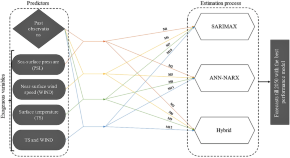
-
Geospatial multivariate analysis of COVID-19: a global perspective
Authors (first, second and last of 7)
- Nonita Sharma
- Sourabh Yadav
- Tanupriya Choudhury
- Content type: OriginalPaper
- Published: 23 October 2021
- Pages: 69 - 83
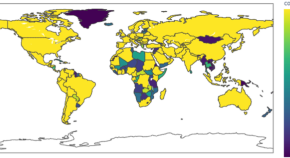
-
Prediction of sonic log and correlation of lithology by comparing geophysical well log data using machine learning principles
Authors (first, second and last of 8)
- Dev Joshi
- Atul Kumar Patidar
- Tanupriya Choudhury
- Content type: OriginalPaper
- Published: 21 September 2021
- Pages: 47 - 68
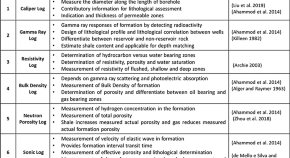
-
Geospatial analysis for natural disaster estimation through arduino and node MCU approach
Authors (first, second and last of 4)
- Amar Shukla
- Neel Adwani
- Bhupesh Dewangan
- Content type: OriginalPaper
- Published: 21 September 2021
- Pages: 29 - 45
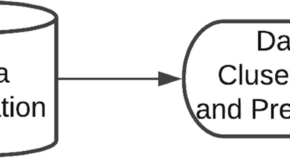
-
Machine learning based analytical approach for geographical analysis and prediction of Boston City crime using geospatial dataset
Authors
- Hitesh Kumar Sharma
- Tanupriya Choudhury
- Adarsh Kandwal
- Content type: OriginalPaper
- Published: 19 August 2021
- Pages: 15 - 27

-
Elephant movement mapping in Hosur forest border areas to detect the elephant intrusion pattern and mitigation measures to resolve human–elephant conflict
Authors (first, second and last of 4)
- Prabu Mohandas
- Jerline Sheebha Anni
- Rajkumar Thanasekaran
- Content type: OriginalPaper
- Published: 05 August 2021
- Pages: 3 - 14
